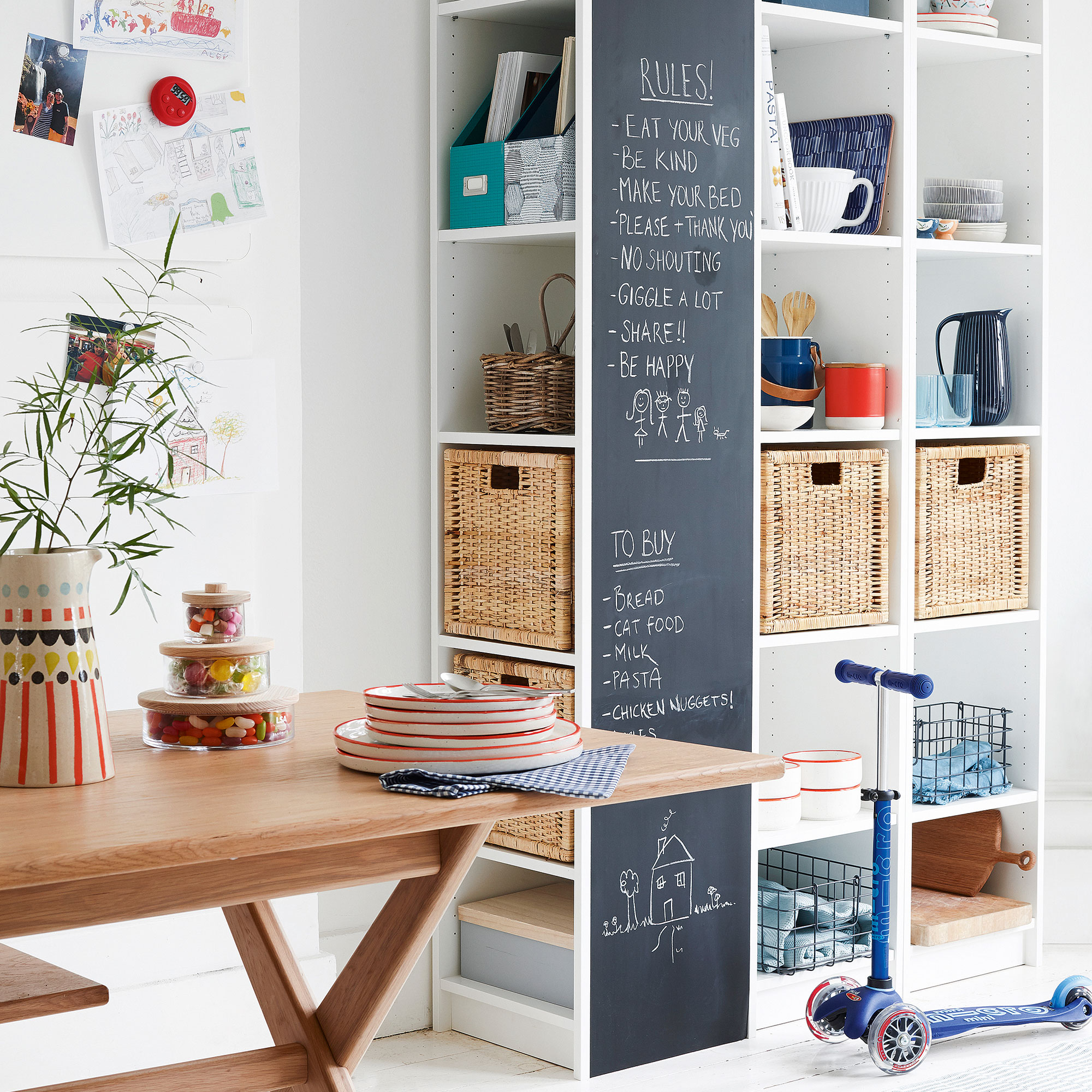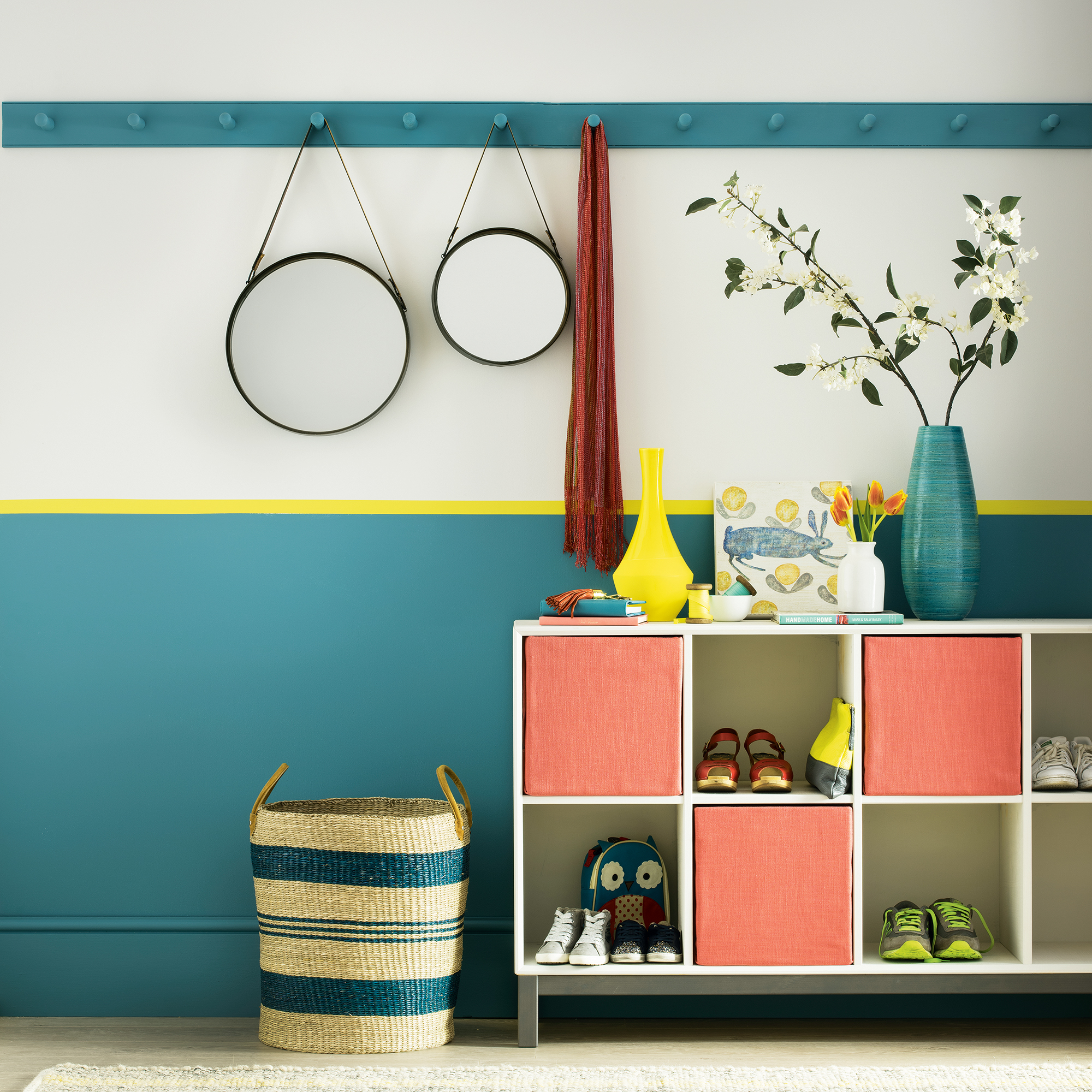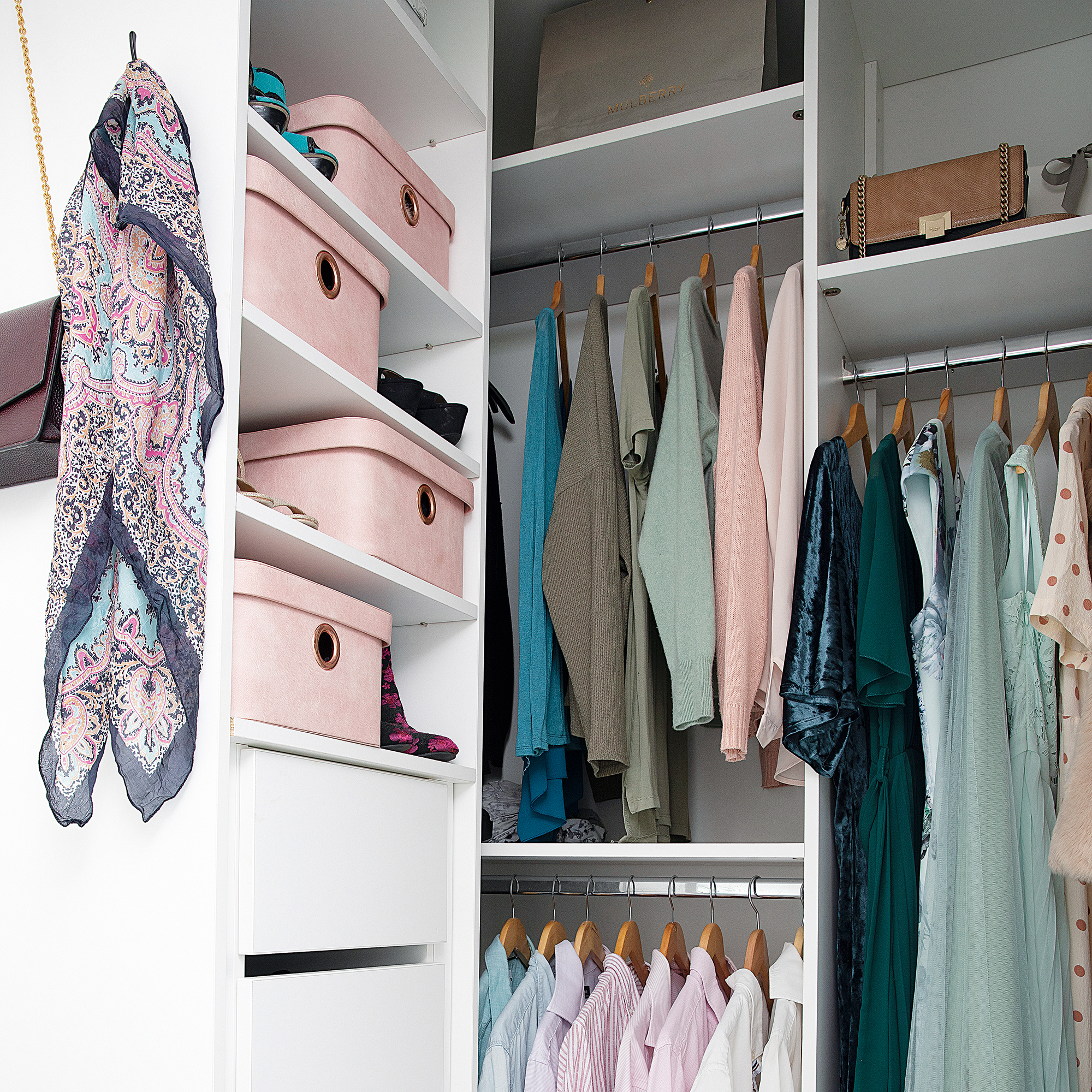
Clutter is the one thing in your home that could be damaging your relationship according to shocking new research.
You could have all the decluttering methods in the world but when the mess builds up, quite often we find ourselves butting heads with our partners. 46% of Brits said a cluttered or messy environment negatively impacts their relationships, according to a new survey by cult storage brand Joseph Joseph in partnership with Opinium.
The survey, which asked 2,000 participants about the connection between home organisation and mental well-being found that 50% of females compared to 42% of males agreed that clutter hurt relationships. The figure was higher within younger age groups with 60% of 18 to 34-year-olds agreeing with the statement, compared to 33% of those aged above 55.
With a build-up of emotional clutter turning to emotional turmoil, here’s how couples can come together to beat excess clutter.
Why does clutter cause conflict?

‘Personal space is an emotive issue, which can cause friction in any relationship where people share space. However, in romantic relationships, the impact can be particularly acute,’ explains Susie Masterson, relationship coach and BACP registered trauma-informed therapist.
‘One person's clutter is another's comfort. That’s why it can be a really difficult, though important conversation to have when we are in a relationship. The psychology of decluttering involves understanding the emotional, mental, and behavioural aspects of how clutter affects us and why we accumulate it in the first place. Decluttering is more than just organising or tidying up physical space; it’s a process that reflects our relationship with our environment, possessions, and even ourselves.’
What feels like clutter to you can be sentimental to your partner. Furthermore, we all have different decluttering styles, which can cause one party to feel like they're not being heard or overwhelmed. Not being able to work together is a big decluttering mistake, but how can we come together?
How can couples declutter together?
‘To deal with these problems, couples should declutter their spaces together. Such a collaborative decluttering would not only help clear the space but also develop communication, teamwork, and compromise between the couple,’ says Maria Anderson, cleaning and organizing expert at Henfield Storage.
‘Each couple should have specific goals set for each session, respect one another's sentimental items, and establish personal spaces that each of them can manage according to preference.

‘Implementing common organizational systems that suit both partners can also lead to a decluttered and harmonious home. This idea focuses on leveraging decluttering as a tool to enhance understanding and teamwork in relationships, turning a potentially contentious issue into an opportunity for growth and rekindling the connection.’
Susie also recommends accepting compromises as you both go through the process of decluttering.
‘Set clear goals for what you both want to achieve and be prepared to make compromises along the way. After all, the process can always be revisited again in the future,’ she says.
‘Celebrate any progress you make and acknowledge the positive impact of the change. For example, you might notice how your home office is a much more pleasant space to work in. Or, how comfortable you both feel watching a movie on the sofa, now there is nothing to distract you both.’
Organisation systems to invest in
Once you've decluttered clear organisation is the best way to keep the piece and these solutions can help you achieve that.
Joseph Joseph is renowned for their simple and effective storage solutions. This under shelf storage organiser is pefect for storing all your home cleaning essentials.
A storage trolley is a great way to add extra storage to small spaces. Adaptable to any room, it's great for items that typically take up space such as make-up and accessories.
Bedding and towels are often guilty of taking up loads of storage space. These handy bags keeps them compactly packed away.
Decluttering shouldn't be a power struggle between couples. By talking the challenge as a pair and being mindful of each other's feelings, it's a job you can sucessfully tackle together.







